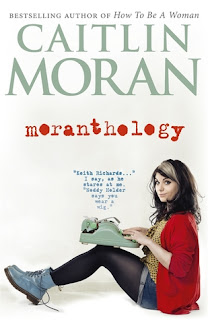Big Breasts & Wide Hips by Mo Yan was one I had been waiting for a while on library loan. Mo Yan won the Nobel last year and seemed to be the talk of the town and I hadn't read anything by him. This book is huge, and kind of intimidating, but trust me it reads a lot easier than something like War & Peace. It takes some doing to read this book in the office break room without getting weird looks. But the pay off is worth it for me, I could have read another 400 pages.
"In the brief history of Northeast Gaomi Township, six women have been transformed into Fox, Hedgehog, Weasel, White Snake, Badger, and Bat Fairies, all result of love denied or a bad marriage; each lived a life of mystery, earning the fearful respect of others. Now a Bird Fairy had appeared in my house, which both terrified and disgusted Mother."
Big Breasts & Wide Hips is the story of a family, primarily the women of the family. Mother is the main character I would say, as opposed to the narrator, her one and only boy-child Jintong. Mother grew up in the 1900's in a rural Chinese village where her feet were bound and tradition revered. Then the revolution turned things upside down and Mother married the butcher's boy. She has eight daughters, all by different men, and finally, finally has a boy. Mother is abused by her in-laws, raped often, and endures crushing poverty to try to keep her family together. Tons of horrible, horrible things happen to a lot of people in this book, so if violence is not your thing, be warned.
Jintong grows up with the biggest breast-fascination ever and does not eat solid food until he is well in his teens. Every woman's breasts hold his attention and he even gropes a few of his sisters at times. Because he is the boy, and thus the important one of the family, he is babied by all of them and grows up to be useless.
"Mother was rooted to the spot like a pine tree and I was a knot on the trunk of that tree."
We see the family adapt to the times, the girls grow and rebel and marry. War, occupation, peace, none bring lasting happiness to the family. Time passes all the way through to the post-Mao period in China, but to me the history was a bit confusing at times. Granted, I take that as my fault as I know very, very little about Chinese history.
What the book is about is a family, the same way that 100 Years of Solitude is about a family. While reading Big Breast & Wide Hips I kept noting how much it felt like 100 Years. The magical elements of telling a rich and detailed story about all of the people who affected the story of your family.
"Are women really wonderful things? Maybe they are. Yes, women definitely are wonderful things but when all is said and done, they aren't really 'things'."
This is one is the best book I have read yet this year.






